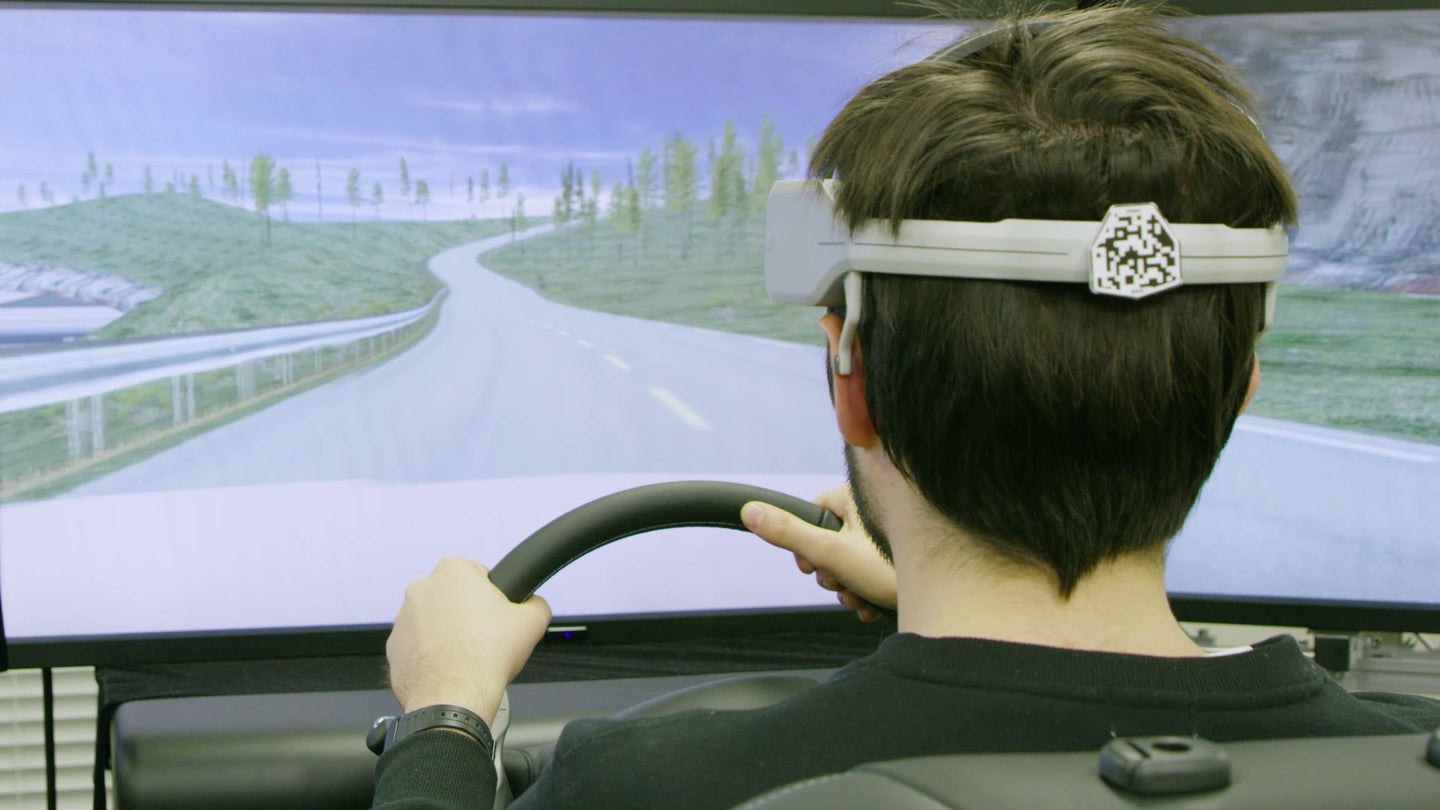Nissan is Working on Brain-to-Vehicle Technology
It uses your brain waves to give you a ‘more exciting and enjoyable’ driving experience.

While the autonomous car arms race is going on and major car companies and tech firms battle it out to see who can get the most advanced self-driving technology to market the soonest, Nissan is kicking it up a notch with its growing Nissan Intelligent Mobility technology suite. Nissan is working on ways to use the original supercomputer in autonomous car technology—the human brain.
You may have heard of Vehicle-to-Vehicle or V2V technology, but Nissan calls this new tech Brain-to-Vehicle or B2V technology. It’s a driving system that interprets signals from the driver’s brain to “make the drive even more exciting and enjoyable,” according to Nissan executive vice president Daniele Schillaci in a press release.
Nissan B2V is intended to predict the inputs the driver is thinking about making such as turning the steering wheel or stepping on the accelerator. It’s also being developed to detect and evaluate driver discomfort and change the driving style accordingly. If you’re uncomfortable, it will be able to drive more gently so you can enjoy the ride.
It’s all a bit vague, so we reached out to Nissan looking for more details. Nick Maxfield from the Nissan Japan communications department told us there are three areas that need further development before B2V is ready for real-life application; measurement device, autonomous drive, and signal interpretation algorithm. “The measurement device we use now is sufficient for research, but for practical application, it must become smaller and more stable,” said Maxfield about the hardware that makes B2V possible. As for the autonomous aspect, Nissan is still working on achieving level 4 autonomy with B2V. “When the technology is put into practical use, there will be a vast amount of data that can be used, which will then improve detection performance,” said Maxfield on the signal interpretation algorithm.
“Real-time detection of preparatory brain activity that relates to driving actions is the first of its kind. Also, the technology to detect error-related potentials from the driver’s medial prefrontal cortex and applying it to automobiles is a world’s first,” said Maxfield. “We have been working with brainwaves to assess driving load and help with informational systems for a while now, and we have documented our work in research papers and published articles. This is our first time applying the subject into driving control and real-time application.”
So when will B2V be ready for market? “We are aiming for practical application in 5 to 10 years,” said Maxfield. “It’s difficult to be more specific at this point since we’re showing the technology while it’s in development.”
Nissan's Brain-to-Vehicle technology will make its live debut at CES 2018 in Las Vegas next week.

